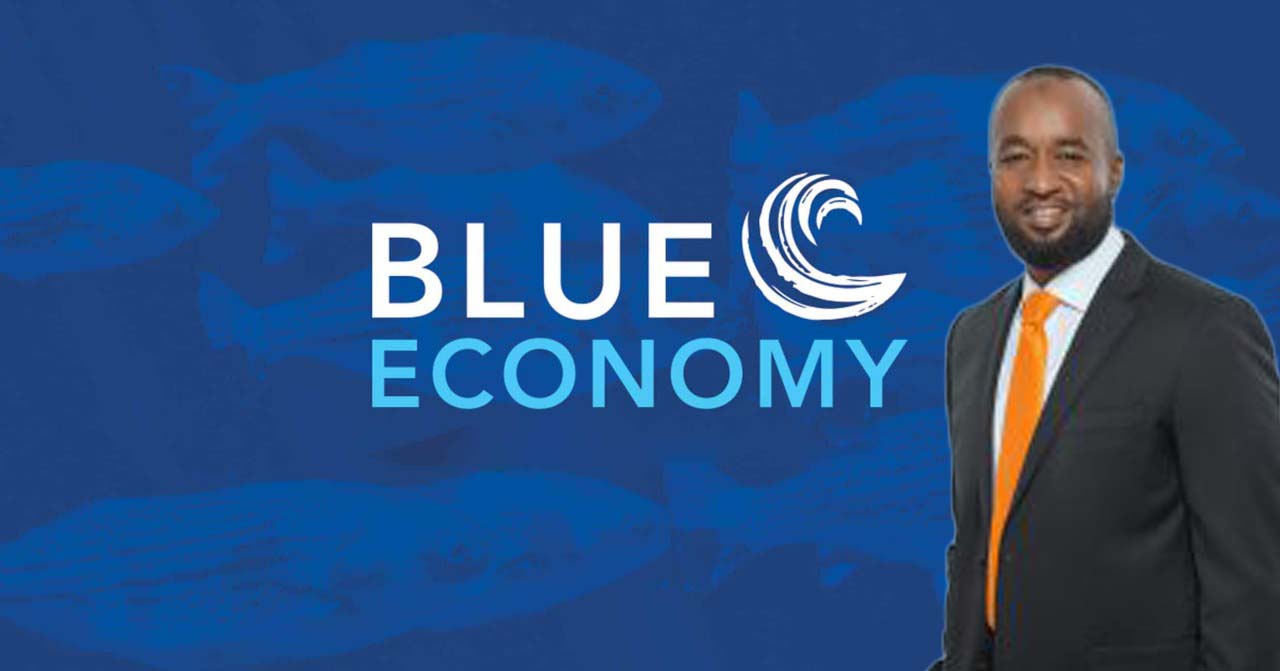The Blue Economy: Hassan Joho’s Vision to be for Sustainable Development in Kenya.
Definition of Blue Economy
The term “Blue Economy” refers to the sustainable use of ocean resources for economic growth, improved livelihoods, and jobs while preserving the health of ocean ecosystems. In addition, This concept encompasses a wide range of activities including fishing, maritime transport, tourism, and renewable energy production. Hence, By integrating sustainable practices, the Blue Economy aims to balance economic development with environmental conservation.
Understanding the Blue Economy
The Blue Economy encompasses various sectors that contribute to sustainable development:
- Sustainable Fisheries and Aquaculture: This sector promotes responsible fishing practices to maintain fish populations and habitats. Sustainable aquaculture, or fish farming, is also a key component.
- Maritime Transport: Efficient and environmentally friendly shipping and port operations are vital. Innovations in maritime transport aim to reduce carbon emissions and improve fuel efficiency.
- Tourism and Recreation: Coastal and marine tourism emphasize eco-friendly practices that protect natural habitats and support local communities.
- Renewable Energy: Ocean energy, including wind, wave, and tidal power, provides clean energy sources, reducing reliance on fossil fuels.
- Marine Biotechnology: The development of products from marine resources, such as pharmaceuticals and biofuels, contributes to health and energy sectors.
Hassan Joho’s Role in the Blue Economy
Hassan Joho, a prominent Kenyan politician and former Governor of Mombasa County, has been a vocal advocate for the Blue Economy. Recently nominated as Cabinet Secretary for Mining, Blue Economy & Maritime Affairs, CS Hassan Ali Joho is set to drive significant initiatives in this sector. His vision for the Blue Economy, encapsulated in his initiative johoBreakout, aims to position Kenya as a hub for sustainable ocean-based economic activities.
- Enhancing Maritime Transport and Logistics: Joho plans to improve Kenya’s port infrastructure, particularly in Mombasa, to handle larger cargo volumes efficiently. This includes modernizing port facilities and adopting green technologies to minimize environmental impact.
- Promoting Sustainable Tourism: Under Joho’s leadership, there will be a push towards sustainable tourism. Initiatives include developing eco-friendly resorts and promoting marine conservation projects to attract environmentally conscious tourists.
- Supporting Local Fisheries: Joho’s policies will focus on supporting local fishermen through sustainable practices. This includes providing training on sustainable fishing techniques and offering financial assistance to small-scale fisheries.
- Investing in Renewable Energy: Joho is keen on harnessing the potential of renewable ocean energy. His administration will explore opportunities for wind and tidal energy projects along the Kenyan coast.
- Fostering Innovation in Marine Biotechnology: By encouraging research and development in marine biotechnology, Joho aims to create job opportunities and drive economic growth. This includes partnerships with academic institutions and private enterprises to explore the commercial potential of marine resources.
Blue Economy Opportunities in Kenya
Kenya’s coastal and marine resources offer vast opportunities for economic development. There are various blue economy courses in Kenya that aim to equip individuals with the skills needed to thrive in this sector. These courses cover topics like sustainable fishing, marine conservation, and renewable energy, preparing a workforce ready to harness the Blue Economy’s potential.
The Blue Economy in Kenya includes numerous examples of successful projects. These projects range from community-based marine conservation areas to large-scale renewable energy installations. The importance of the Blue Economy lies in its ability to create sustainable jobs and improve livelihoods while protecting the environment.
Joho’s Impact as CS Hassan Ali Joho
As the new Cabinet Secretary for Mining, Blue Economy & Maritime Affairs, Hassan Joho’s impact will be significant:
- Economic Growth: By leveraging ocean resources sustainably, the Blue Economy can drive substantial economic growth. This includes creating jobs in sectors like tourism, fisheries, and renewable energy.
- Environmental Conservation: Sustainable practices should be promoted by Joho will ensure that economic activities do not compromise the health of marine ecosystems. Additionally, This balance is crucial for the long-term viability of ocean resources.
- Community Development: Joho’s initiatives should focus on local communities, by improving livelihoods through training and financial support to local fishermen and developing infrastructure that benefits coastal communities.
- Global Leadership: Joho’s should undertakes a proactive approach positions Kenya as a leader in the Blue Economy, will attract international partnerships and investments.
In conclusion
The Blue Economy offers immense potential for sustainable development. With Hassan Joho at the helm as Cabinet Secretary for Mining, Blue Economy & Maritime Affairs, Is Kenya is poised to capitalize on this potential? Thus, By balancing economic growth with environmental conservation, Joho might pave the way for a prosperous and sustainable future for Kenya and beyond.

Leave a Reply